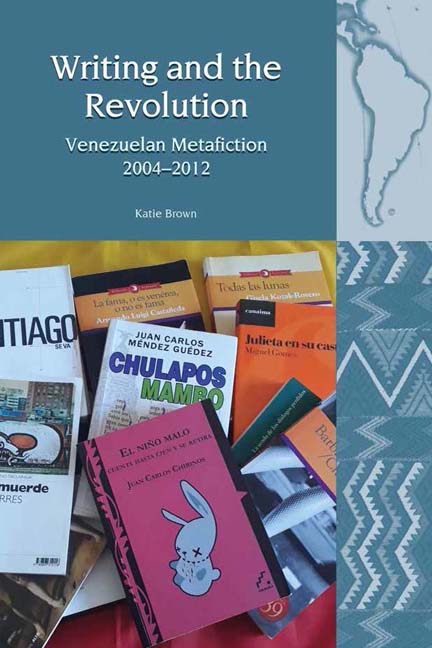Introduction
Summary
Twenty-first-century Venezuelan literature is almost entirely absent from English language scholarship. This book is a small step towards rectifying this absence, presenting analysis of eight Venezuelan novels published between 2004 and 2012, in the context of the Bolivarian Revolution. While the Bolivarian Revolution began in 1999 and continues in power at the time of writing, these dates mark a key period in which concerns about the values and uses of literature were at the forefront of many novels, between the creation of the Minister for Culture (2004) and the last full year of Hugo Chávez's life (2012). The lack of studies of contemporary Venezuelan writing reflects the invisibility of Venezuelan literature from world literary space: limited international circulation, translations or recognition in literary prizes. Many contemporary writers and critics allude to the invisibility of Venezuelan literature abroad, such as Rubi Guerra (2007, 7), who highlighted the lack of knowledge of Venezuelan literature abroad in his introduction to 21 por XXI, an anthology of twenty-first-century Venezuelan short stories. Venezuelan literature can be considered a minor literature following Deleuze and Guattari's (1975, 29) definition: ‘Une littérature mineure n’est pas celle d’une langue mineure, plutôt celle qu’une minorité fait dans une langue majeure’ [A minor literature isn't that of a minor language, but rather one made by a minority in a major language]. This is not a value judgement of the literature itself. Indeed, one of the aims of this book is to demonstrate the literary merit of the texts analysed. Instead, as I will demonstrate, a combination of factors, including the legacy of the Latin American ‘Boom’ and the relative economic and political stability of Venezuela in the 1960s to the 1990s, meant that Venezuelan literature has until recently been produced almost entirely within the Venezuelan state system. Consequently, it is unsurprising that the extensive changes in cultural policy introduced under President Hugo Chávez, as well as diverging ideas about the values attached to writing and the different uses thereof, are reflected in contemporary Venezuelan fiction. As such, analysis of contemporary Venezuela problematises the recent theories of ‘global’ (Hoyos, 2015) or ‘post-national’ (González, 2012; Robbins and González, 2014) Latin American literature which are based on studies of a handful of countries, revealing the enduring influence of national factors on literary production.
- Type
- Chapter
- Information
- Writing and the RevolutionVenezuelan Metafiction 2004-2012, pp. 1 - 44Publisher: Liverpool University PressPrint publication year: 2019



